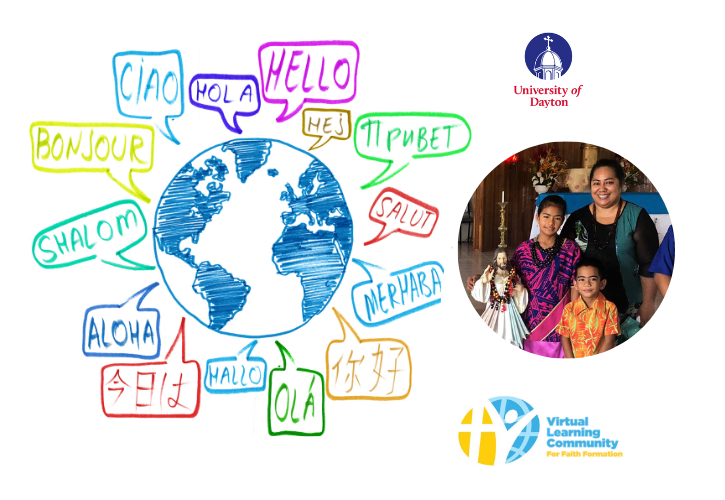Institute for Pastoral Initiatives News

The Languages of Learning
Malo e lelei! (Hello)
Fefe hake? (How are you?)
'Oku ou sai pe. (I am fine)
Tonga native Malia Mafi sent us a typical exchange in her country.
Like Malia and many other adult students learning online with the Virtual Learning Community for Faith Formation (VLCFF), English is their second language.
“We understand English is a universal language,” Mafi said.
“If someone applies to teach at Catholic Schools in Tonga, that person has to pass English.”
Malia grew up attending Catholic schools and now works for the Catholic education office in the Diocese of Tonga/Niue. She says there are still challenges understanding a second language but being able to participate in classes online allows her to continue her education in many ways.
“I realize I’m still trying to understand many aspects of English, but I am able to learn more about my faith as a Catholic through the university’s VLCFF,” she said.
Global students must also cope with the time difference, but since the VLCFF platform is asynchronous, that allows for a much easier transition for their education. Partnering dioceses from Australia, United Arab Emirates, Africa, South America, Tonga and other locations create a community of learners worldwide.
“I can’t express how lucky I am to join the University of Dayton VLCFF,” Mafi said. “I'm delighted.”
Malo (Thank you) Malia, for joining us and sharing your story!
The Virtual Learning Community for Faith Formation offers classes in three languages; English, Spanish and Arabic. Go to VLCFF.UDayton.edu for more information and to create a profile to register for three- or five-week classes. Click here to see class start dates and courses. Some scholarships are available for students that qualify.
